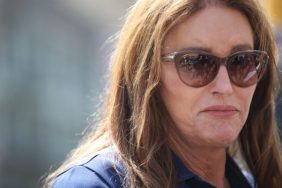Photo by Laurel Nakadate
Award-winning author Rick Moody has seemingly written it all: six novels, three collections of stories, a memoir, and a volume of essays. His 1992 debut, The Garden State, won the Pushcart Press Editors’ Book Award and his subsequent book, The Ice Storm, was made into a film (of the same name) starring Kevin Kline and Sigourney Weaver.

When he’s not wrangling words on the page, Moody composes music for, and plays with, the three-member folk band The Wingdale Community Singers. A studious music lover, he also pens the “Swinging Modern Songs” column for The Rumpus.
Moody, who holds an M.F.A. from Columbia University and currently teaches at New York University, answered some burning questions for Crave.
CraveOnline: Reginald Edward Morse, the protagonist of Hotels of North America, reviews hotels. As someone who has been the subject of many (book) reviews, did writing from the POV of a reviewer feel like a form of retribution or catharsis for the kinds of reviews your writing has received?
Rick Moody: The experience of posing as a reviewer was never retributive. It was meant to be compassionate. The goal was to try to look at the online reviewer from the inside and to see, from that vantage point, the wounds and aches of the online reviewer. Even the most sadistic Reddit troll has a soft warm inside that s/he displays to her/his family on occasion, when away from the mouse pad. I wanted to get to that soft warm inside. Maybe, as you suggest, this was a little cathartic, but not in any mean-spirited way.
Morse is a motivational speaker by trade. What kinds of research did you do to capture that profession authentically?
I teach quite a bit, which is often a lot like motivational speaking. I have also self-declared as a life coach in the years since my last novel, The Four Fingers of Death. You can go peek online if you like [at rickmoodybooks.com] or even send me an advice question [at rickmoodythelifecoach [at] gmail [dot] com]. I think I’m actually not so bad at the life coachery. And it’s only a hop, skip, and jump from life coachery to motivational speaking.
You’re a musician as well as a writer. What did your playlist consist of while writing Hotels of North America?
In recent years, I have stopped listening to music with words while writing, because I can’t hear the prose in my head when the lyrics are happening at the same time, so most of the playlist is instrumental music these days. I especially like really extremely drone-oriented experimental music, like Terry Riley and William Basinski and Phil Niblock and Gordon Ashworth and Stars of the Lid and of course Brian Eno, about whom I have written a lot over the years. The best Eno pieces for hotel reviewing in the last twelve months were New Space Music and Lux. I also like jazz quite a bit, but it has to be noisy, very way-out-there jazz, like mid-sixties Sun Ra or Ornette Coleman, etc.
How does the music you listen to during the writing of a book influence the story?
I pre-select the mood of the music so it’s already consonant with the mood of the book, and therefore it doesn’t influence, it reinforces.
If asked to cast the film version of Hotels of North America, who would you choose to play the main characters?
The Reginald Morse character should be a middle-aged guy with a certain desperation. John Cusack or Ethan Hawke maybe. David Duchovny wouldn’t be bad, but he has already played a character named Moody. The woman named K. is meant to be of mixed race, and half-Asian, and there just aren’t that many actresses who fit that bill. Which means that Hollywood, or the star-making machinery probably discriminates against Asian actresses, and they should be embarrassed about that. Of course, I should point out that my book is probably unfilmable.
You’ve written in so many genres. Which do you find most challenging? Which do you find most joyful?
What I find challenging is specifically working in only one genre. If I was allowed only to write novels, for example, without relief, I would probably get very bad at writing novels. So no genre is particularly harder than any other, it’s more that I need to experiment, whether or not it’s good for my career, or despite being less effective at some (poetry, let’s say). The reaching, the feeling-off-balance, these, I think, make me a better fiction writer. As does making music. Playing music with other people makes me a far better fiction writer.

Photo by Bobby Bank/WireImage
What changes have you seen in the publishing industry over the 20+ years of your career? Which changes do you see as improvements? Which changes do you consider disappointing?
The changes you ask about are so enormous, so cataclysmic, that trying to catalogue them all would probably fill the interview and then a couple more besides. When I worked in publishing (which I did before publishing my first novel), people still edited manuscripts by hand. The copyediting and line editing all took place with a red pencil on 8 1/2 x 11 manuscript paper. When you wanted to talk to the author, you called her up on the telephone. And when you wanted to get a point across quickly to a colleague, you took a little card and wrote something on it, and put this card in your colleague’s in-box. That all seems very quaint now. I think something has been lost when we writers and publishers no longer work on paper. I often feel I can tell when a book or a story was never on paper before it got printed as a book. I actually typed my MFA thesis (in 1986) on an IBM Selectric typewriter that had no correcting key. When I made changes on the manuscript, I really thought about them! Drafting was arduous.
That’s one difference, the instantaneity of digital publishing. As in the music business and the movie business, digital culture makes some things easier for book publishing, and some things a lot harder. Another difference in the 25 years I’ve been publishing is the vertical integration of the (multi-national) publishing companies. I think this is a terrible shame. That there are only really four or five corporate publishers in the world now is awful, awful for writers, awful for readers, awful for literary culture. That’s why most of the best publishers now (Archipelago, Coffee House, Graywolf, Tin House, Dzanc, McSweeney’s, New Directions, Overlook, Melville, not to mention many others, and a wealth of good university presses) are small indie presses. I am very lucky to be published by one of the bigger houses, and I think my good fortune has been anomalous. I know to be grateful about this, and also not to count on it.
What’s good, of course, is decentralization with web publishing. I happen to dislike reading things online, but, at least, there is a lot happening on the web, and with self-publishing, and publishing to order. I think those forces are democratic forces, and that’s great for everyone.
Least interesting development: e-books.
How have your work habits changed over the course of your career? Which have endured and which have you jettisoned? Do they change based on the kind of book you’re writing?
No, really, it’s all kind of the same. I work when I have a spare hour or two, and I work on whatever I feel like working on. I used to go to writing colonies a lot, and I can’t do that now because I have a child, and therefore I can’t be away as long. Other than that, the fits and starts of writing have been consistent for me for thirty years, really. I think my first drafts have improved a bit, because I know better what I want to do now.
How does teaching enhance or detract from your own writing/creative life?
The only negative about teaching is that it takes a lot of time. Otherwise, I love it. It’s an emotional thing for me. I love that I can be a positive force for younger writers. I love that teaching brings me close to what younger writers think about the world. As all teachers will tell you: they teach me.
What is the biggest distraction that tempts you away from writing? How do you harness it?
My daughter and my wife are two distractions. I really love being around them, however, so I welcome their distractions.
What is your preferred type or style of hotel to stay in while on tour?
I don’t like super fancy hotels. I want to be able to wear jeans and sneakers without feeling like I’m sticking out somehow. I don’t want to see famous people in the lobby. I don’t care if there’s a pool. I like total anonymity. I like being exactly like everyone else in America. Motel 6 depresses me, but I don’t need much more than that. As long as the oatmeal is not from a packet, I can stay pretty happily in a hotel.
You are often seen wearing a black hat. What kind is it? What is the story behind it? (Is it a nod to Tom Waits?)
More a nod to Charles Mingus than to Tom Waits. My hat, I believe, is technically called a “stingy brim,” not a porkpie, though it is similar to a porkpie. It was a style popular in the forties and fifties. African-American men wore them a lot then, and often older African-American men will compliment me on my hat, which, believe me, makes me feel good about life. I don’t see my hat as being an aesthetic statement. It’s really just a hat. But it has been with me for a good fifteen years now, and I am very fond of it. I hope I don’t lose it on tour, because I did last time, in Seattle, and it took three weeks to get it back.








